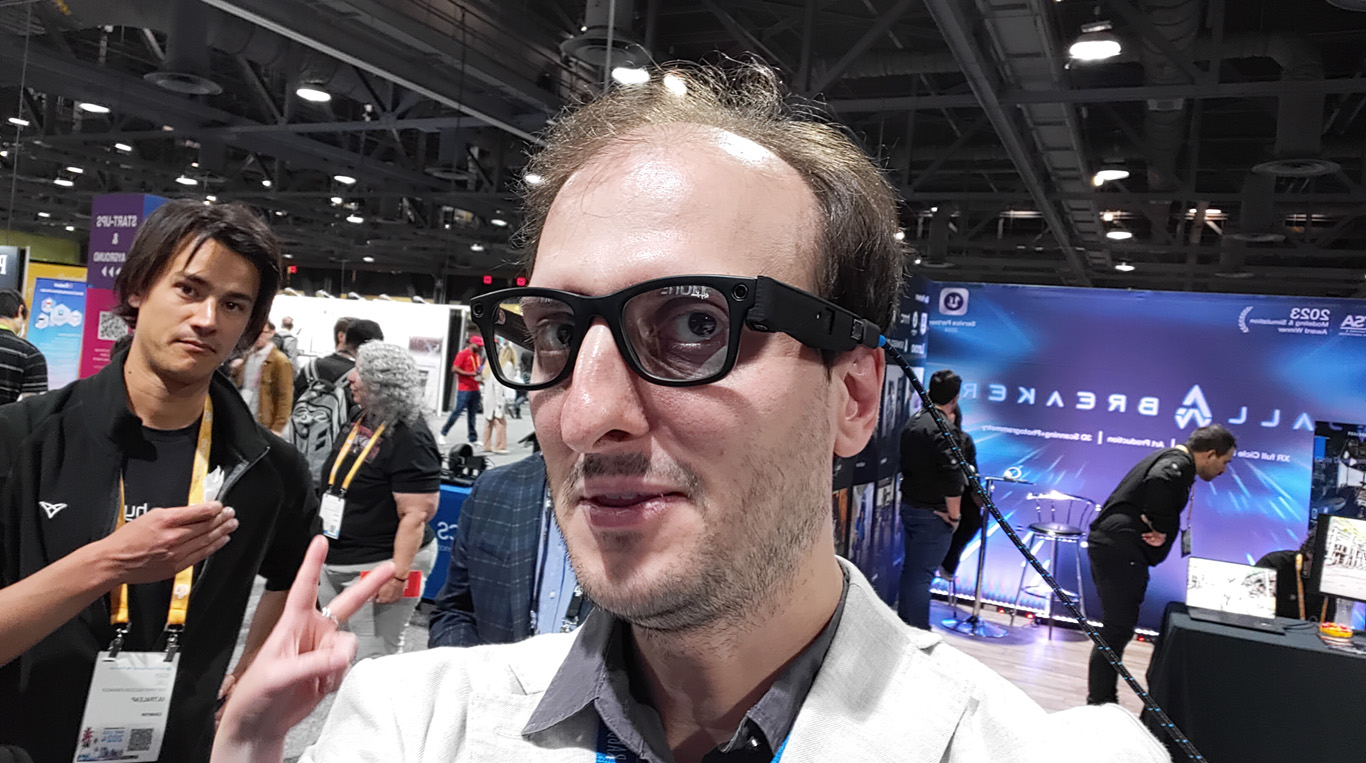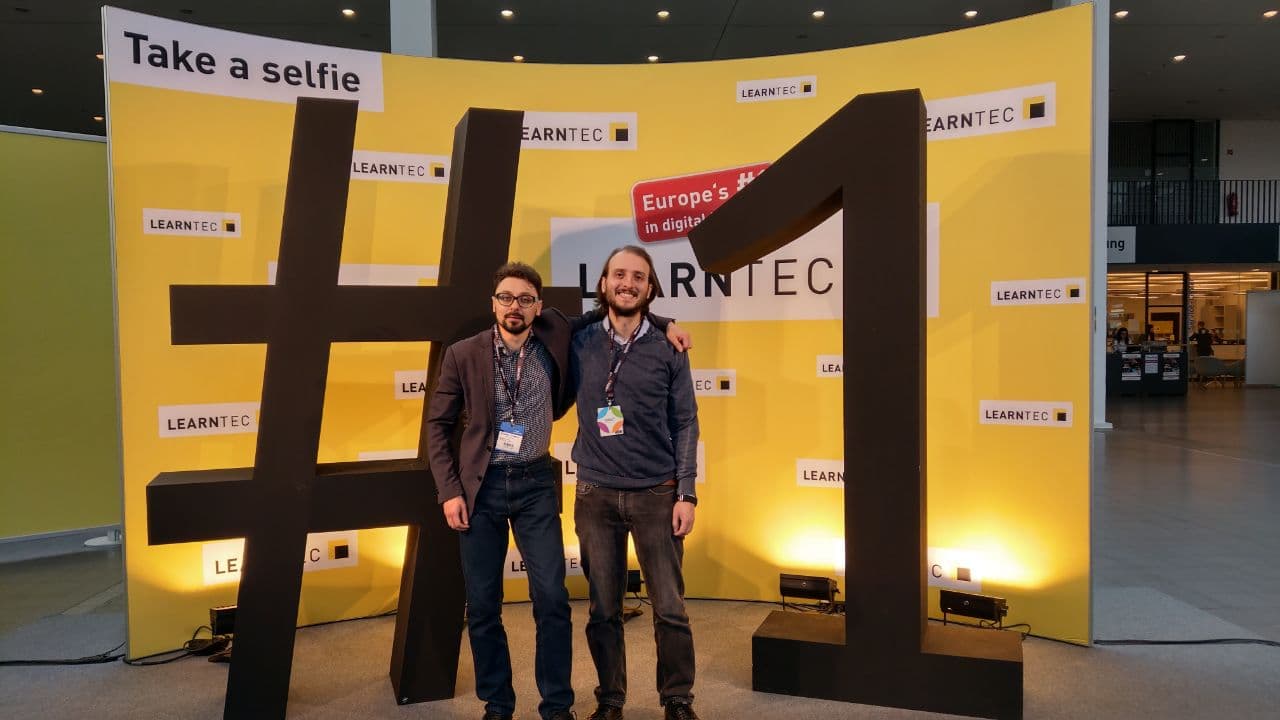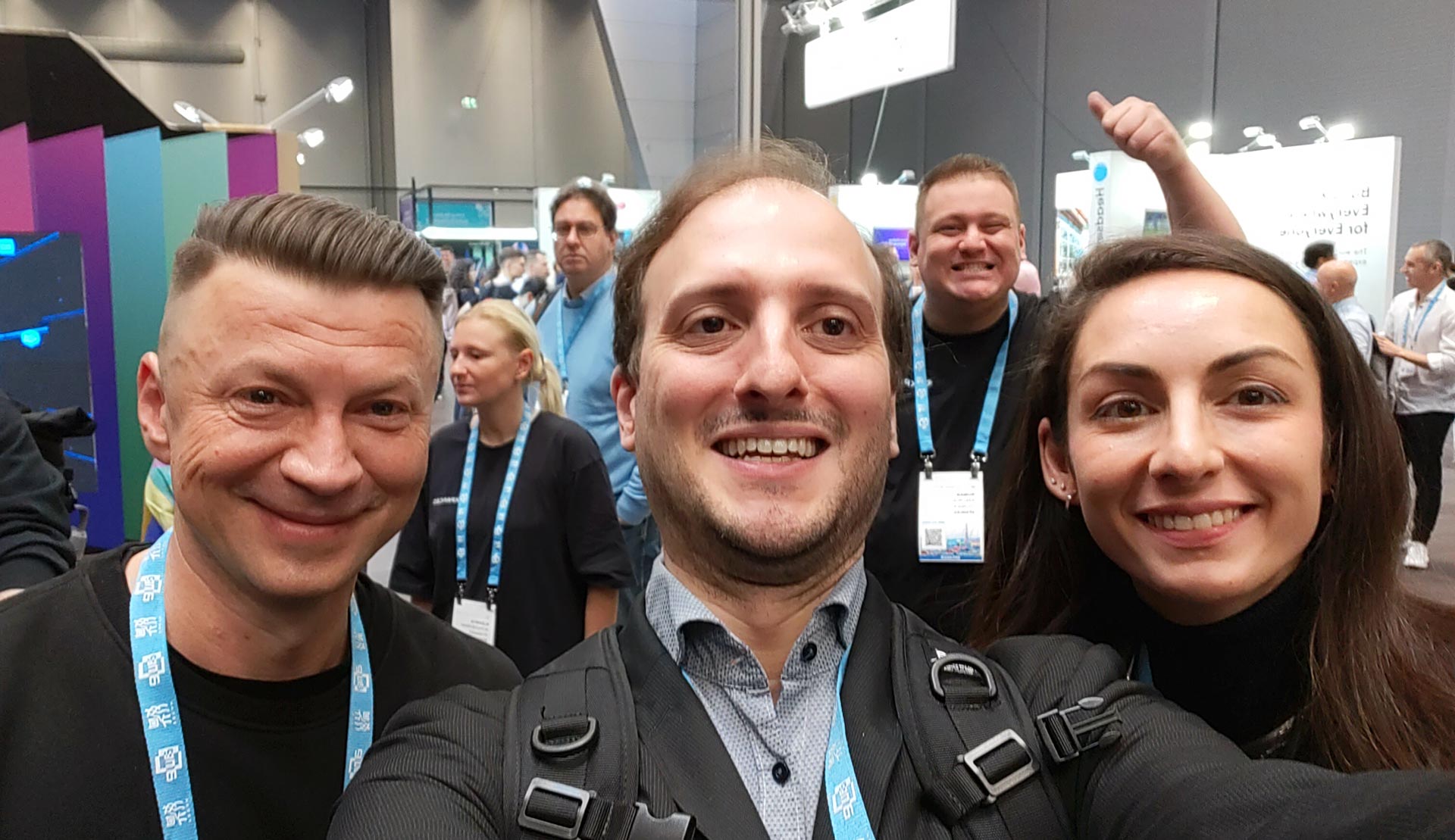The importance of aligning everything you do in your VR career to your goals
Today I want to get back to writing a post about VR startup life and personal development, an article more similar to what you usually find in a personal blog. In particular, I want to talk about a strategy I’ve recently applied to plan my days better and align what I’m doing with what I want to obtain in my VR career. I’ve been using this strategy for a few weeks now and I’m seeing very positive results, so I’m sharing it with you.
So what is this mysterious secret strategy I’m talking about? Well, actually, nothing that is rocket science, but a principle so simple that it may seem obvious: “Decide what you want to obtain in your work life and align all your choices according to it”. I know, after the initial tease, you were expecting some incredible revelation, or a sign coming directly from above, but trust me when I say that this simple sentence is much more powerful than you think.
It all starts by deciding what you want to do in your work life in the next 3-5 years. What is your goal? What is your mission? What drives you to wake up every day and go to work? Where do you want to arrive? This on its own, is a very difficult task to do: some people have a clear idea of what they want to become, others are just working on autopilot. But it’s not only important, it is SUPER important to have a goal, to have a destination, and to know where you want to be, otherwise, it would be like being in a car and not knowing where are you heading. How can you know if you are on the right path if you don’t know which one is your destination?
I know you are always busy, but it’s overly important you stop for a moment and think about this. Dedicate a few hours to find your goal, which should be something that you like doing, and also give you enough money to sustain yourself. Remember that there are no right or wrong answers, there are only YOUR answers. Even an answer like “I just want to do my 8-5 VR development job every day and have no career advancement and focus on enjoying the time with my family” is perfectly fine. Don’t be fooled by the hustle culture or the “LinkedIn influencers” that say that everyone should be the CEO of a unicorn, just think about where YOU personally want to arrive in a few years. Of course, the goal should be stimulating for you, something that gives you enthusiasm so I still suggest you be ambitious: no one wakes up motivated in the morning by the long-term goal of being the average potato frier at McDonald’s. You may want to be a famous XR Youtuber, an XR CTO, the best XR stand-up comedian, an XR artist at Ubisoft, the champion of XR potato frying (this is my goal), whatever you want.
After you have your destination, the usual suggestion is to go backward in calculating the path you need to get there. So for instance, to be an XR CTO you need first to become an XR developer, have some experience in a few companies, study code architecture, get knowledge about a few different technologies, etc…
After you have this rough plan, the important things you have to do is: stick with it, and verify you are advancing towards it every day. These are the two things that I’ve started to do more frequently in the last weeks and that are bringing me good results.
One of the most difficult things is sticking with the plan because it means being very focused on what you want to become and making it your priority, ignoring other opportunities you may find down the line. Everything in your working life should align with your goal or be rejected if it can slow down the path toward your goal. This is a hard part because it means letting go of interesting opportunities.
So if your goal is to become a super-famous VR YouTuber and someone offers you a good job as a developer, theoretically you should decline it, which also means giving up on thousands of dollars. I said “theoretically” because real life is much more nuanced than a simple statement can be. For instance, you may have in your plan to be a developer and do your first YouTube videos in the evening or during the weekends. If this was part of the plan, you should get the job. Or maybe the development gig is a part-time one, and you can make it fit your schedule as a YouTuber and earn extra money. Different cases lead to different outcomes.
Life is not all black and white, so probably it is better to talk about “priorities” than about a hard yes/no switch. You must make your main goals the top priority of your working life, with the rest coming after it. If you want to become a VR Youtuber, that should be the priority and all the other opportunities should be secondary of it. For every activity that is proposed to you, you should ask yourself: does it align with my goal of becoming a VR Youtuber? If it does not help you directly, can it help indirectly (e.g. providing money or connections)? And if it does not help at all, can you do it anyway because it does not steal resources from that main goal? Are there any factors for which you would need to do it anyway (e.g. the activity would be helpful for a close friend)? Keeping in mind your priorities helps you in deciding what you want to do.
This also trickles down on how you organize your weeks and your days: when you do your daily and weekly planning, you should allocate first the time dedicated to the tasks of your priority goals, assigning to them all the time that they need, and then assign the remaining time to the other activities, until you fill all your working time. And if an activity does not fit in your schedule, that’s fine: it is not a priority one, you can let it go. Basically, every decision you take should be made in a way consistent with your goals. Will this make you lose some opportunities? Yes. Will this disappoint someone who hoped to count on your help with something? Absolutely. But you have only one life and you should be satisfied with it. Your priority is being happy yourself, not not-disappointing the others.
Of course, plans should be changed and reassessed once in a while. Nothing goes exactly as planned, so every few weeks, you should see if your plan is going as expected and re-plan if needed (usually it is needed). Sometimes you may even realize that you have changed in the meantime and you have now different priorities in life (this happens for instance when people have children) and this means you may change your destination goals. Or you may change your goals because you have reached the current ones, or because you realized there is no chance you can obtain what you hoped for (e.g. the goal was overly ambitious): giving up can sometimes be the wise thing to do instead of keeping stubbornly going for the same route and keeping failing. Or an unexpected opportunity may come: maybe your goal is becoming a Youtuber when Mark Zuckerberg sends you an email and asks you to become an executive of Meta and support him in his quest on the harvestingdataverse for a gazillion dollars a year: in this case, it is wise to get the opportunity, because it is something that happens once in a lifetime.
The last point that I want to suggest and that has been a good addition to my daily routine is: to ask yourself frequently what you are doing to fulfill your goals. Every week, in my weekly planning, I put the tasks that put me closer to my goals in a different color and I give them priority. And every day, in my morning routine, I now ask myself what I will do during the day to become what I want to be. I’m not gonna lie, doing that every day sounds stupid… a lot of mornings, I just answer myself “Yeah, I’m doing this VR thing that I did also yesterday and the day before”. But asking it every day like a mantra helps me keep committed, and helps me in questioning if I’m really working towards my goals: because if in two consecutive days, I answer “no today I’m not doing anything that fits my priorities” then I realize that something is wrong with my planning. That is also a good moment to assess if the direction that I’m following is the correct one and evaluate if my recent progress has been good.
It is a bit like when you want to lose weight and you go on a scale every day. It is good because this action reminds you that your goal is losing weight and then checking your weight frequently, you can notice if you are doing well (and so keep doing what you are doing) or going bad (and so fixing your bad behavior). If you weigh yourself once a month, I’m pretty sure you won’t obtain many results.
These simple rules I just told you are actually helping me a lot in my VR career. I’m not trying anymore to do everything in VR and I feel less “guilty” when I reject a proposal that doesn’t fit my current goals (of course I always do that in the kindest way possible). I feel I’m behaving more coherently and I’m more “aggressive” and consistent in my efforts. Also sometimes during the daily assessment time, I have new ideas on things I can do during the day to get closer to my goals.
And I’m seeing the results of this: I believe I’m advancing my career much better than before. And even for some small goals I set for myself, like meeting Palmer Luckey at AWE, this fact of doing everything I could to make it happen, in the end, made me obtain what I wanted. That’s what made me write this article: I’ve found this strategy is working for me and I wanted to suggest it to you, too.
And if you try to apply it, of course, let me know how you feel doing it. Good luck with your VR career!
Disclaimer: this blog contains advertisement and affiliate links to sustain itself. If you click on an affiliate link, I'll be very happy because I'll earn a small commission on your purchase. You can find my boring full disclosure here.



